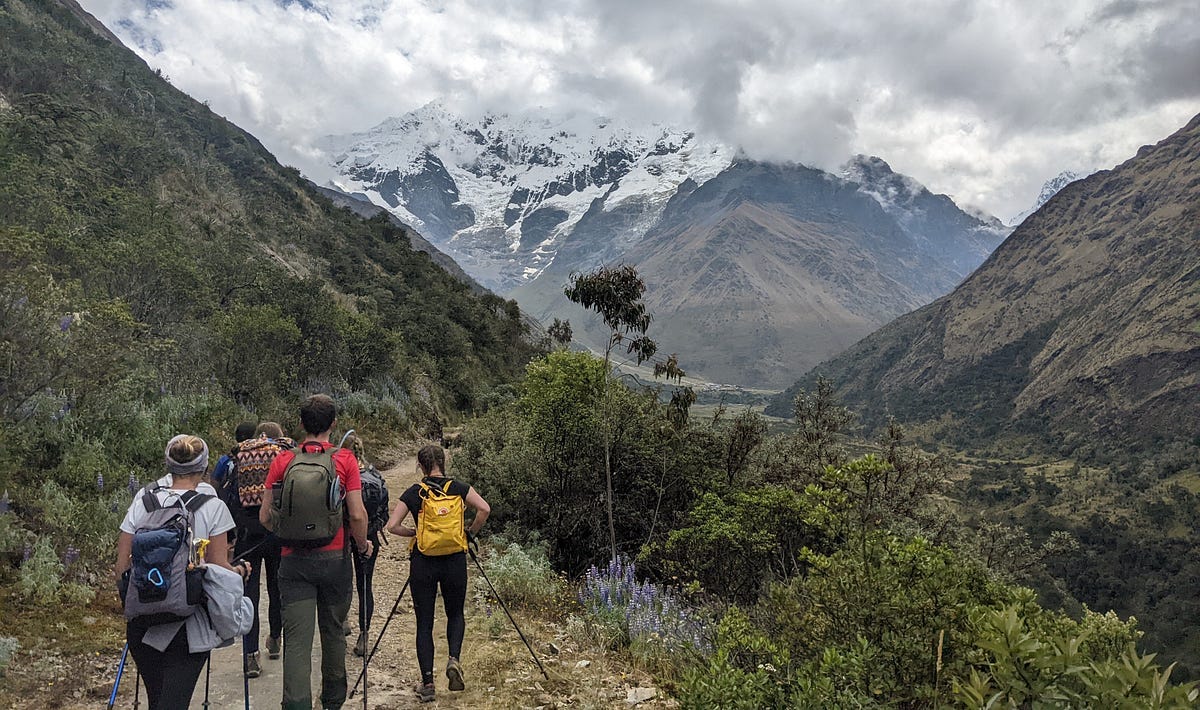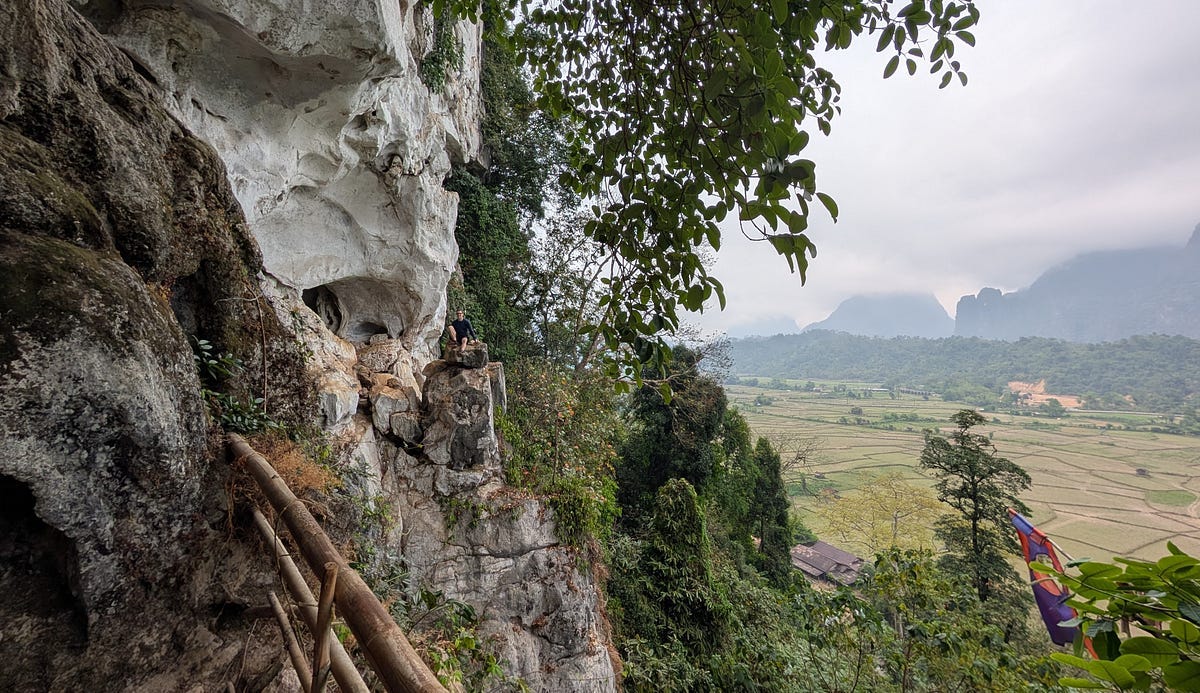Escaping the Hedonic Treadmill of Travel, and Life
We always desire more, but sometimes we need to give up control to disover something beautiful.
In travel, as in many pleasurable activities in life, it is easy to fall into a cyclical pattern of always wanting more, no matter what you have achieved. This is the revolving wheel of desire, sometimes referred to in psychological circles as the hedonic treadmill. We want to go somewhere new, see something we have never seen before, taste food unlike anything we’ve ever tasted, and this motivation drives us to travel more, to find remote places we may have never heard about before. Ultimately, it is the expected pleasurable sensations that we are craving. Each new experience or food or landmark is only a proxy for these feelings, and we expect that they will bring us pleasant sensations of happiness and joy.

However, many frequent travelers end up always thinking about the next step. Instead of living in the moment, they are thinking about what comes next. The next town will be the really beautiful one, the next hostel will be the one where I meet the best friends, the next dish I try will surely be the most delicious, so goes the unconscious thought process as they plan the rest of their trip. This is a condition I have unfortunately found myself in frequently.
This cycle doesn’t just happen in travel. It is common in all aspects of life in which people seek to better themselves or gain pleasure. A few thousand dollars more salary per year, or a bit more definition in one’s musculature, or a few more Instagram followers, they all seem like goals that would bring some type of lasting pleasure, as if to achieve that goal will finally be enough. But this is a trick our dopamine circuitry plays on us. Our brain loves the expectation of pleasure and the build up towards achieving a goal, but it doesn’t care much about actually having it, a phenomenon discussed in depth by Mike Long and Daniel Z. Lieberman in their book, The Molecule of More (2018). It is this same pleasure seeking pattern that leads us to addiction to drugs, sex and video games.
While the addiction to new places is nowhere near as harmful as heroin, it is something that I am very personally familiar with, both in my own travels and seeing it in other fellow backpackers. In the attempt to see everything, you can end up experiencing nothing. While all around you is exactly what you always wanted, your mind is stuck thinking about what else is out there. Your eyes are closed while wandering through Angkor Wat, and all you can think about is the street food in Hanoi. And when you finally taste that banh mi, your tongue is already in The Philippines.
In order to combat this suffering caused by yearning, it’s important to live in the present moment. And while it is easy (and recommended) to read an Eckhart Tolle book, it’s harder to put it into actual practice. How do we make sure to not let the present moment escape us?
Often, this desire for more comes from the fear of missing out. We all live a finite life, but there are seemingly an infinite amount of things that we can fill our time with. Whenever you arrive at a new place while travelling, you discover a new list of things to do and you meet new people who have visited other places. For every one place you visit, you find out about four new places you must visit, and you add them to your list. With the way others describe their travels as the “best thing they’ve ever seen!”, it’s hard not to want to see it too. It’s easy to see how such exponential growth of ones travel list is untenable.
To fight the urge to overstuff your itinerary, it is important sometimes to throw the list away entirely. Travelling with no intended destination or goal can often lead to the most amazing and unexpected experiences. It might take adopting the way of thinking espoused by Oliver Burkman in his book 4000 Weeks (2021), and in his lectures and online courses, the act of giving up the desire for control and understanding in every situation and the freedom and bliss that comes from it. In travel, and in life, we are constantly faced with forks in the road in which we have to choose one thing or the other, but we become paralyzed by “FOMO”, and by the fact that we don’t know which direction will lead to the best outcome. But instead of stressing endlessly by trying to deduce the best course of action, it’s often better to give up all control. You might simply not decide at all, perhaps flipping a coin, or letting someone else decide for you. We will never really know what was down the other path, and that’s okay. It doesn’t need to stop us from enjoying the present moment.
Some of the best trips in my life have been ones in which I made no plan, booked nothing, knew no one, and simply showed up. This was the case on my recent trip to Laos. While many people took a guided tour to cross from Chiang Mai in Thailand across to Houayxai in Laos, and then along the Mekong River in the slow boat, I did it all myself without any planning involved. In each town that I arrived at along the river, I just found the closest guesthouse and booked with them after I got there. I didn’t even really know where I was going, except that I’d end up in Luangprabang eventually. On the boat I met a group of other solo travellers and we ended up spending the next two weeks together travelling through Laos. And in all that time, I simply went with the flow and did whatever they were doing, and renounced all desire to control the situation or choose a fork in the road. It ended up being one of the best trips of my life.
An added benefit to this type of travel is the opportunity to support local businesses and hotels. The tourism industry has become cannibalistic and oligarchic. Websites like Booking.com and TripAdvisor have an outsized control over where people go and what they choose to see. They also take a cut of the profits from rooms and tours booked through their websites. Smaller businesses are unable to compete with the big players who rise to the top and have all the reviews, and those who don’t list their properties or services on these websites risk not having any exposure or advertising. In a world where almost every traveller looks up reviews for every restaurant, hotel, tour or temple wherever they go, and often books online, the experiences become less authentic, more capitalistic and fewer unique options remain. Going into places without a plan and without looking anything up allows you to discover underappreciated places and support locals directly without any middleman. We don’t want algorithms controlling our trips any more than we want them controlling other aspects of our lives.
Travelling without any plan has its risks, and you are likely to encounter difficult situations where you don’t know where you will sleep that night, or where to find food, or how to get from one place to another because of a language barrier. But these types of experiences should be embraced, not shunned. We already live a pampered existence as travellers who can afford to explore the world. We don’t need every moment of our lives to be choreographed, and we can find joy and growth in uncomfortable experiences. Part of the fun of going to new places is getting out of your bubble. If you don’t get dirty, feel exhausted, get confused or hurt at least once, I would consider that a failure of a trip. Those who spend their time in blissfully isolated beach resorts sipping watered-down cocktails may disagree, but I struggle to see any value from these kinds of trips.
So, on your next trip, consider throwing away your itinerary. Don’t even buy a sim card, just go in blind and see what happens. You are going to struggle and suffer, and it will be so worth it. Let go of the desire to always be in control, and embrace not knowing. In travel, and in life, it is one of the most important things you can do.
-Caleb


